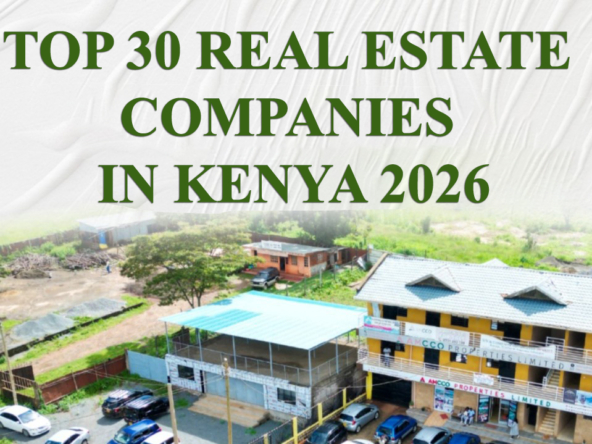Uganda real estate fraud poses a significant threat to the nation’s burgeoning property sector, costing the market an estimated UGX 250 billion annually. This staggering figure is a direct result of illicit activities such as widespread title duplication and the proliferation of fake brokerage operations. Beyond the immediate financial losses, these fraudulent practices deeply erode investor confidence, dramatically inflate transaction timelines, and unequivocally spotlight critical regulatory gaps that still need to be addressed. Securing the real estate landscape in Uganda isn’t just about financial protection; it’s about fostering an environment of trust and transparency that attracts sustainable investment and promotes genuine development.
The Pervasive Nature of Real Estate Fraud in Uganda
Understanding the scale and scope of Uganda real estate fraud is the first step toward effective mitigation. The problem isn’t isolated incidents; it’s a systemic challenge manifesting in various forms.
Title Duplication: A Foundation for Deception
One of the most insidious forms of Uganda real estate fraud is title duplication. Annual surveys conducted by the Ministry of Lands consistently reveal over 8,000 parcels of land with duplicate titles. This alarming statistic means that a single piece of property can have multiple official ownership documents, leading to devastating consequences for unsuspecting buyers. Fraudsters exploit this vulnerability by selling the same land to multiple individuals, creating complex and often prolonged legal battles. Buyers, having invested their life savings, find themselves entangled in litigations that can span years, incurring substantial legal fees, and ultimately losing their investment and the dream of property ownership. The existence of duplicate titles not only undermines the integrity of the land registry but also breeds a profound sense of insecurity among both local and international investors looking to participate in Uganda’s property market.
Ghost Estates: The Illusion of Investment
Another rampant form of Uganda real estate fraud involves what are commonly referred to as “ghost estates.” These schemes typically involve online-only promotions for properties that simply do not exist in the physical world. Exposed by detailed investigations from media outlets like the Daily Monitor, these scams have defrauded buyers of anywhere from UGX 5 million to UGX 20 million per incident. Victims are lured by attractive digital advertisements, often featuring professionally rendered images and seemingly legitimate project plans. They make payments for plots or homes that are nothing more than elaborate fabrications, only to discover later that the “developer” or “broker” has vanished, leaving them with no property and no recourse. The digital nature of these frauds makes them particularly difficult to track, as perpetrators can operate from anywhere, exploiting the anonymity of the internet to their advantage. This highlights the critical need for buyers to conduct thorough physical verification of any property, regardless of how convincing its online presentation might be.
Proactive Responses: Regulation and Technology Combatting Fraud
Recognizing the severity of Uganda real estate fraud, various stakeholders, including government bodies and private sector innovators, have begun implementing robust regulatory and technological measures. These initiatives are crucial for building a more secure and transparent property market.
Agent Licensing Regulations 2025: Professionalizing the Sector
A pivotal step in curbing Uganda real estate fraud is the introduction of the Agent Licensing Regulations 2025. This landmark legislation mandates compulsory licensing for all real estate agents operating in Uganda. Beyond just licensing, the regulations require thorough criminal background checks for prospective agents, aiming to weed out individuals with a history of fraudulent activities. Furthermore, the regulations establish a comprehensive code of ethics that all licensed agents must adhere to, promoting professional conduct and accountability. The consequences for non-compliance are severe, with fines of up to UGX 10 million for engaging in unlicensed practices. By professionalizing the brokerage sector, these regulations aim to create a verifiable pool of legitimate agents, making it harder for fraudsters to operate under the guise of credible professionals. This also empowers buyers to easily verify an agent’s legitimacy, adding a crucial layer of protection against fake brokerage operations.
Blockchain Pilots: An Immutable Ledger for Land Titles
Technological innovation is proving to be a powerful ally in the fight against Uganda real estate fraud. Pilot programs leveraging blockchain technology, such as the one initiated by Land LayBY UG in Wakiso, are demonstrating immense potential. This pilot project has successfully recorded 5,000 parcel titles on an immutable ledger. Blockchain, by its very nature, creates a secure, decentralized, and tamper-proof record of transactions. Once a land title is registered on the blockchain, it cannot be altered or duplicated without leaving an undeniable digital trail. This significantly reduces verification times, as the authenticity of a title can be quickly and reliably confirmed. More importantly, it eliminates many of the traditional fraud vectors associated with manual record-keeping and paper-based titles. The wider adoption of blockchain technology across Uganda’s land registry could fundamentally transform the real estate landscape, instilling unprecedented levels of trust and transparency.
Escrow Services: Securing Buyer Deposits
Another vital tool in combating Uganda real estate fraud is the increasing adoption of escrow services. Platforms like EscrowPay offer a crucial layer of financial security for buyers. With an escrow service, buyer deposits are held in a secured, neutral third-party account rather than being paid directly to the seller or agent. These funds are only released to the seller upon the confirmed and successful transfer of the property title to the buyer. This mechanism protects buyers from scenarios where they pay for a property only to find out later that the title is fraudulent or that the seller is not the legitimate owner. Escrow services act as a financial safeguard, ensuring that money only changes hands when all conditions of the sale, particularly the legal transfer of ownership, have been met. This significantly mitigates the risk of financial loss due to fraudulent transactions.
Persistent Challenges in the Fight Against Fraud
Despite these proactive measures, significant challenges remain in fully eradicating Uganda real estate fraud. These hurdles require concerted efforts from all stakeholders to overcome.
Enforcement Gaps: The Bottleneck in Justice
One of the primary challenges is the presence of enforcement gaps within the existing regulatory framework. While regulations and laws are being introduced, limited manpower at Land Registration Offices often delays investigations into suspected fraud cases and prolongs court proceedings. This backlog means that fraudulent actors are not always brought to justice swiftly, which can embolden others to continue their illicit activities. Effective enforcement requires adequate human resources, specialized training for officials, and streamlined legal processes to ensure that fraudsters are prosecuted efficiently and that victims receive timely redress. Without robust enforcement, even the most well-intentioned regulations may not achieve their full impact.
Public Awareness: A Critical Defense Line
Perhaps the most significant ongoing challenge is the lack of public awareness regarding the risks of Uganda real estate fraud and the available protective measures. Current data indicates that only approximately 30% of buyers actively verify an agent’s license status or utilize secure escrow services. This low adoption rate leaves a vast majority of the public vulnerable to scams. Many buyers, especially those new to the real estate market or operating with limited knowledge, are susceptible to attractive but misleading offers. Comprehensive and sustained educational campaigns are desperately needed to inform the public about common fraud tactics, the importance of due diligence, and the benefits of using regulated agents and secure financial platforms. Empowering the public with knowledge is arguably the most effective long-term defense against fraud.
Investor Implications and Strategic Approaches
For both local and international investors eyeing Uganda’s real estate sector, understanding the landscape of Uganda real estate fraud is paramount. Adapting strategies to mitigate risks is not merely advisable; it is essential for securing investments.
Due Diligence Costs: An Essential Investment
Investors must recognize that due diligence is not an optional expense but an essential investment. It is highly recommended to allocate 2–3% of project budgets specifically for legal and verification fees. This allocation should cover costs associated with thorough title searches, physical verification of properties, and engagement with reputable legal counsel to scrutinize all transaction documents. Leveraging modern digital verification tools, where available, can also significantly streamline this process and enhance accuracy. Cutting corners on due diligence can lead to far greater financial losses in the long run if a fraudulent transaction is discovered after investment.
Collaborative Initiatives: Strengthening Market Integrity
Beyond individual protective measures, investors have a role to play in strengthening the overall integrity of the Ugandan real estate market. Supporting public awareness drives, for instance, through corporate social responsibility initiatives or partnerships with non-governmental organizations, can directly contribute to educating the public about fraud risks. Furthermore, contributing to capacity-building efforts for regulators and land registration offices – whether through funding, expertise sharing, or advocacy – can help address the enforcement gaps. Collaborative initiatives foster a healthier, more transparent market environment, which ultimately benefits all legitimate investors by reducing systemic risks associated with Uganda real estate fraud.
Conclusion: A Path Towards a Fraud-Resilient Real Estate Sector
The battle against Uganda real estate fraud is multifaceted, requiring a sustained and coordinated effort. While the challenges are significant, the commitment to effective regulation, continued technological adoption, and extensive public education offers a clear path forward. The continued rollout of licensing frameworks for agents, the expansion of blockchain registries for land titles, and the wider embrace of secure escrow services are foundational pillars in this fight. By collectively addressing regulatory gaps, enhancing enforcement capabilities, and empowering the public with critical information, Uganda can progressively shrink the avenues for fraud, thereby bolstering investor trust and fostering a robust, secure, and thriving real estate sector for years to come.




